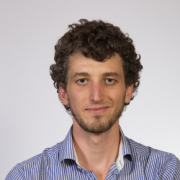– Europe/Lisbon
Online

Diffusion models, theory and methodology
Generative modeling is the task of drawing new samples from an underlying distribution known only via an empirical measure. There exists a myriad of models to tackle this problem with applications in image and speech processing, medical imaging, forecasting and protein modeling to cite a few. Among these methods diffusion models are a new powerful class of generative models that exhibit remarkable empirical performance. They consist of a “noising” stage, whereby a diffusion is used to gradually add Gaussian noise to data, and a generative model, which entails a “denoising” process defined by approximating the time-reversal of the diffusion. In this talk we discuss three aspects of diffusion models. First, we will dive into the methodology behind diffusion models. Second, we will present some of their theoretical guarantees with an emphasis on their behavior under the so-called manifold hypothesis. Such theoretical guarantees are non-vacuous and provide insight on the empirical behavior of these models. Finally, I will present an extension of diffusion models to the Optimal Transport setting and introduce Diffusion Schrodinger Bridges.